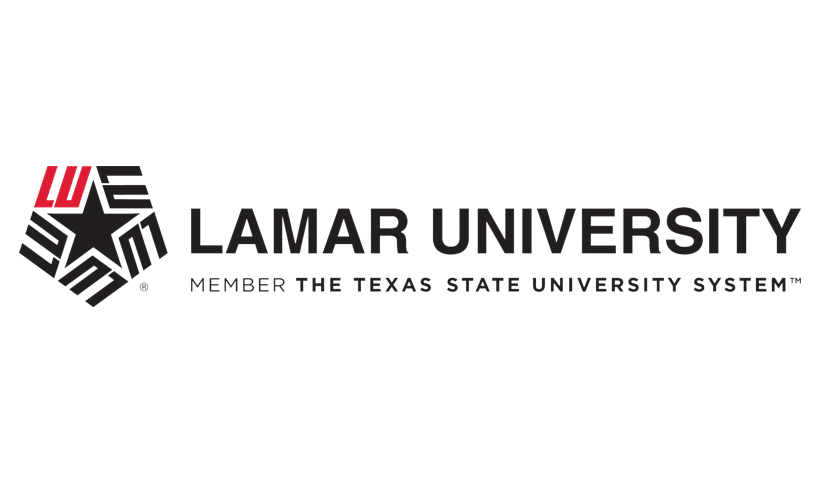The counseling profession includes a wide range of licenses and certifications, each with specific qualifications and areas of practice. These abbreviations—such as LPC, LMHC, and LMFT—can be confusing for students, aspiring counselors, and even clients seeking mental health services.
Understanding counseling credentials is essential for choosing the right career path, meeting state licensing requirements, and ensuring professional credibility. Each designation reflects different education levels, training, and scope of practice, and in some cases, the same license may have different names depending on the state.
 Walden University : MS in Clinical Mental Health Counseling (CACREP Accredited, six specializations to choose from)
Walden University : MS in Clinical Mental Health Counseling (CACREP Accredited, six specializations to choose from) Walden University : MS in School Counseling (CACREP Accredited)
Walden University : MS in School Counseling (CACREP Accredited) Northwestern University : Online MA in Counseling (CACREP Accredited)
Northwestern University : Online MA in Counseling (CACREP Accredited) Northwestern University : Master of Science in Marriage and Family Therapy (Complete your COAMFTE-accredited MFT online program in as few as 21 months. No GRE is required, but applicants must hold an undergraduate degree.)
Northwestern University : Master of Science in Marriage and Family Therapy (Complete your COAMFTE-accredited MFT online program in as few as 21 months. No GRE is required, but applicants must hold an undergraduate degree.) Grand Canyon University : Master's Degree in Counseling (CACREP Accredited)
Grand Canyon University : Master's Degree in Counseling (CACREP Accredited) Liberty University : MA: Clinical Mental Health Counseling (Online with required intensives)
Liberty University : MA: Clinical Mental Health Counseling (Online with required intensives) National University : Master of Science in Clinical Mental Health Counseling (Accredited. No GRE. Scholarships Available)
National University : Master of Science in Clinical Mental Health Counseling (Accredited. No GRE. Scholarships Available) University of Denver : Master of Arts in School Counseling (CACREP Accredited)
University of Denver : Master of Arts in School Counseling (CACREP Accredited) Mid-America Christian University (MACU) : Master of Science (MS) in Counseling (100% Online, No GRE Required)
Mid-America Christian University (MACU) : Master of Science (MS) in Counseling (100% Online, No GRE Required)Why Do Counseling Licenses Have Different Abbreviations?
Counseling licenses vary by state, profession, and specialization, leading to different abbreviations for similar roles. While many states use terms like Licensed Professional Counselor (LPC) or Licensed Mental Health Counselor (LMHC) interchangeably, the specific title and requirements depend on state regulations and the scope of practice allowed under each credential.
State-Specific Licensing Variations
Each state sets its own licensing requirements for counselors, which is why the same profession may have different names in different locations. For example:
- Some states use LPC (Licensed Professional Counselor), while others use LPCC (Licensed Professional Clinical Counselor) or LCPC (Licensed Clinical Professional Counselor).
- LMHC (Licensed Mental Health Counselor) is commonly used in states like New York and Florida, while LCMHC (Licensed Clinical Mental Health Counselor) is used in North Carolina and a few others.
These differences can make it confusing when comparing credentials across states, especially for counselors considering relocation or licensure by endorsement.
Education, Training, and Scope of Practice Differences
Beyond state variations, counseling credentials also reflect differences in training and specialization. Some licenses, like LMFT (Licensed Marriage and Family Therapist), focus specifically on relationship and family therapy, while others, like LCPC or LPCC, emphasize clinical mental health counseling.
Additionally, national certifications such as the NCC (National Certified Counselor) provide further specialization but do not replace state licensure.
The Role of Accreditation and Certification
Accreditation ensures that counseling programs meet national standards, while certification offers an additional layer of professional recognition.
- CACREP (Council for Accreditation of Counseling and Related Educational Programs) accredits many counseling degree programs, which helps standardize education requirements across states.
- National certifications, such as the NCC or CCMHC (Certified Clinical Mental Health Counselor), can enhance a counselor’s credentials but do not grant state licensure on their own.
While counseling abbreviations can be complex, understanding their differences is essential for choosing the right career path and meeting professional requirements.
Consider a Featured Online Counseling Program
| School and Program Information | Online Program? Entry Requirements | Course Information | |
|---|---|---|---|
|
Walden University
MS in Clinical Mental Health Counseling
 CACREP Accredited CACREP Accredited |
✔ Online
GRE scores not required
|
Walden’s online CACREP-accredited MS in Clinical Mental Health Counseling program can help you become the competent, compassionate counselor you know you can be.
|
Learn More |
|
Walden University
MS in School Counseling
 CACREP Accredited CACREP Accredited |
✔ Online
GRE scores not required
|
CACREP-accredited program provides a solid foundation in school counseling theories, approaches, and best practices while enabling you to gain hands-on experience.
|
Learn More |
|
Northwestern University
Online MA in Counseling
 CACREP Accredited CACREP Accredited |
✔ Online
GRE Not Required
Bachelor's Required |
CACREP-accredited online Master of Arts in Counseling from The Family Institute at Northwestern University. Prepare to pursue licensure in as few as 18 months.
|
Learn More |
|
Northwestern University
Master of Science in Marriage and Family Therapy
COAMFTE Accredited
|
✔ Online
GRE Not Required
Bachelor's Required |
Complete your COAMFTE-accredited MFT online program in as few as 21 months. No GRE is required, but applicants must hold an undergraduate degree.
|
Learn More |
|
Grand Canyon University
Master's Degree in Counseling
 CACREP Accredited CACREP Accredited |
✔ Online
|
CACREP-accredited MS in Clinical Mental Health Counseling. Emphases: Marriage & Family Therapy, Christian Counseling, Childhood & Adolescence Disorders, & Trauma.
|
Learn More |
|
Liberty University
MA: Clinical Mental Health Counseling
 CACREP Accredited CACREP Accredited |
✔ Online
Online with required intensives
|
Our CACREP-accredited online master’s in counseling helps you become a skilled mental health counselor ready to empower others for positive change.
|
Learn More |
|
National University
Master of Science in Clinical Mental Health Counseling
WSCUC Accredited
|
✔ Online
GRE Scores Not Required
|
Focused on training highly skilled counselors to provide impactful and culturally sensitive mental health services in their communities.
|
Learn More |
|
University of Denver
Master of Arts in School Counseling
 CACREP Accredited CACREP Accredited |
✔ Online
No GRE Required; Minimum GPA 2.5 Required
|
With no GRE required, earn your CACREP-accredited Master's in School Counseling online in as few as 24 months from the University of Denver.
|
Learn More |
|
Mid-America Christian University (MACU)
Master of Science (MS) in Counseling
Higher Learning Commission (HLC)
|
✔ Online
100% Online
|
Oklahoma’s largest MS in Counseling program, with emphases in addiction and substance abuse, applied behavioral science, clinical mental health counseling, and more!
|
Learn More |
*Sponsored Counseling Programs
For detailed degree information, view the guides to:
Online CACREP Accredited programs | Online MPCAC Accredited programs
 Walden University - MS in Clinical Mental Health Counseling (CACREP Accredited)
Walden University - MS in Clinical Mental Health Counseling (CACREP Accredited)
 Walden University - MS in School Counseling (CACREP Accredited)
Walden University - MS in School Counseling (CACREP Accredited)
 Northwestern University - Online MA in Counseling (CACREP Accredited)
Northwestern University - Online MA in Counseling (CACREP Accredited)
 Northwestern University - Master of Science in Marriage and Family Therapy (COAMFTE Accredited)
Northwestern University - Master of Science in Marriage and Family Therapy (COAMFTE Accredited)
 Grand Canyon University - Master's Degree in Counseling (CACREP Accredited)
Grand Canyon University - Master's Degree in Counseling (CACREP Accredited)
 Liberty University - MA: Clinical Mental Health Counseling (CACREP Accredited)
Liberty University - MA: Clinical Mental Health Counseling (CACREP Accredited)
 National University - Master of Science in Clinical Mental Health Counseling (WSCUC Accredited)
National University - Master of Science in Clinical Mental Health Counseling (WSCUC Accredited)
 University of Denver - Master of Arts in School Counseling (CACREP Accredited)
University of Denver - Master of Arts in School Counseling (CACREP Accredited)
 Mid-America Christian University (MACU) - Master of Science (MS) in Counseling (Higher Learning Commission (HLC) Accredited)
Mid-America Christian University (MACU) - Master of Science (MS) in Counseling (Higher Learning Commission (HLC) Accredited)
Common Counseling Abbreviations and Their Meanings
The mental health field includes several counseling credentials, each with specific education, training, and licensing requirements. Below are some of the most commonly used abbreviations and what they represent.
LCPC – Licensed Clinical Professional Counselor
- A clinical-level counseling credential used in states like Illinois, Maryland, and Montana.
- Requires additional supervised clinical training beyond the standard LPC license.
- Often allows for private practice and the ability to diagnose mental health conditions.
LPC – Licensed Professional Counselor
- Holds a master’s degree in counseling or a related field.
- Provides therapy for individuals, couples, and groups.
- Common work settings include private practice, mental health clinics, and schools.
- Licensing requirements vary by state but typically include supervised experience and a national exam.
LMFT – Licensed Marriage and Family Therapist
- Specializes in therapy for couples, families, and relationship dynamics.
- Requires a master’s degree in marriage and family therapy or a related field.
- Typically works in private practice, family counseling centers, and healthcare settings.
LMHC – Licensed Mental Health Counselor
- Provides mental health counseling, often in outpatient and community mental health settings.
- Used in states such as Florida, New York, and Massachusetts.
- Requires a master’s degree and supervised post-graduate hours.
LPCC – Licensed Professional Clinical Counselor
- Similar to LPC but includes additional clinical training for diagnosing and treating mental health disorders.
- Used in states such as California and Minnesota.
- Requires a master’s degree and significant supervised clinical experience.
Each of these licenses reflects differences in specialization, state recognition, and professional scope. Understanding these credentials helps students and aspiring counselors choose the right pathway for their career goals.
Other Important Counseling Credentials and Abbreviations
In addition to LPC, LPCC, LMHC, LCPC, and LMFT, there are several other important credentials in the counseling field. These titles often indicate specialized training, supervisory roles, or national certifications that enhance a counselor’s professional standing.
CCMHC – Certified Clinical Mental Health Counselor
- A specialty certification from the National Board for Certified Counselors (NBCC) for counselors with advanced clinical training.
- Often held by those who diagnose and treat complex mental health disorders.
LADC – Licensed Alcohol and Drug Counselor
- A credential for professionals specializing in substance abuse and addiction treatment.
- Typically requires a specialized degree, supervised experience, and an exam.
LCMHC – Licensed Clinical Mental Health Counselor
- Equivalent to LMHC or LCPC but used in states such as North Carolina and New Hampshire.
- Requires a master’s degree in counseling, supervised clinical hours, and state licensure exams.
LCMHCS – Licensed Clinical Mental Health Counselor Supervisor
- A supervisory credential allowing experienced counselors to oversee associate counselors or interns.
- Requires additional experience beyond standard LCMHC licensure.
LMHP – Licensed Mental Health Professional
- A general term used in some states for professionals licensed to provide mental health services.
- Licensing requirements and qualifications vary by jurisdiction.
NCC – National Certified Counselor
- A national certification awarded by the NBCC.
- Does not replace state licensure but can enhance a counselor’s credentials.
- Requires a master’s degree in counseling and passing the National Counselor Examination (NCE).
These additional credentials help define a counselor’s scope of practice, level of supervision, and area of expertise, allowing professionals to specialize in different aspects of mental health care.
Related Professions and Their Acronyms
While licensed counselors make up a significant part of the mental health field, other professionals also provide therapy, diagnosis, and specialized care. Below are some related professions and their commonly used abbreviations.
BCBA – Board Certified Behavior Analyst
- Specializes in applied behavior analysis (ABA), often working with individuals with autism or developmental disorders.
- Requires a master’s degree in behavior analysis and passing the BCBA exam.
LCSW – Licensed Clinical Social Worker
- Provides mental health therapy and case management services.
- Requires a Master of Social Work (MSW) degree and supervised clinical experience.
- Often works in hospitals, social service agencies, and private practice.
MD / DO – Psychiatrist
- A medical doctor (MD) or doctor of osteopathic medicine (DO) who specializes in mental health treatment.
- Can diagnose mental illnesses and prescribe medication.
Each of these professions plays a unique role in the mental health field, with different education and licensing requirements. Understanding these credentials helps individuals determine the best career path for their interests and professional goals.
How to Choose the Right Counseling License for Your Career
Selecting the right counseling license depends on your career goals, preferred work setting, and state requirements. With multiple pathways available, it’s important to understand the differences in education, specialization, and long-term career prospects.
Factors to Consider When Selecting a Counseling Pathway
- Type of Clients You Want to Work With
- If you want to focus on individuals with serious mental health disorders, an LPC, LPCC, or LCPC may be the best fit.
- If you’re more interested in relationship and family counseling, an LMFT might be the right choice.
- If you want to work in social services and case management, consider the LCSW route.
- Educational and Licensing Requirements
- Most counseling licenses require at least a master’s degree in counseling, psychology, or social work.
- Some paths, like LPC and LMHC, require specific coursework and supervised clinical hours before licensure.
- National certifications like NCC or CCMHC can enhance credentials but do not replace state licensure.
- Job Roles and Salary Potential
- Private practice opportunities are more available for LPCs, LCPCs, LMFTs, and LCSWs.
- Hospital and medical settings tend to employ clinical psychologists, psychiatrists, and medical social workers.
- Salaries vary by state and specialization, with clinical roles often earning more than non-clinical counseling positions.
- State Licensing and Mobility
- Some states use different counseling titles, so research state-specific licensing requirements.
- If you plan to move between states, choosing a license with broader recognition (such as LPC or LMHC) may offer more flexibility.
Steps to Ensure Proper Certification and Licensure
- Choose a CACREP-accredited or state-approved counseling program.
- Complete all practicum and supervised experience requirements for your desired license.
- Pass the necessary licensing exams, such as the NCE or state-specific tests.
- Stay up to date on continuing education requirements to maintain licensure.
By considering these factors, you can select the counseling license that aligns with your professional interests and long-term career goals.
FAQ: Counseling Abbreviations and Licenses
What is the difference between LPC, LCPC, and LMHC?
LPC (Licensed Professional Counselor), LCPC (Licensed Clinical Professional Counselor), and LMHC (Licensed Mental Health Counselor) are all state-specific licenses for professional counselors. The main differences lie in:
- LPC is a general counseling license used in many states.
- LCPC is a clinical-level counseling license that typically allows for diagnosing mental health conditions and working in private practice.
- LMHC is used in states like New York and Florida and has similar clinical privileges to LCPC.
Can an LMFT provide individual therapy?
Yes, LMFTs (Licensed Marriage and Family Therapists) can provide individual therapy in addition to working with couples and families. However, their training emphasizes relationship dynamics and systemic therapy.
Do all states recognize the same counseling licenses?
No, licensing titles and requirements vary by state. While LPC is widely used, some states use LPCC, LCPC, or LMHC instead. It’s essential to check state licensing board requirements when choosing a career path or planning to move.
Which license allows for private practice?
Many counseling licenses, including LPC, LCPC, LMHC, LMFT, and LCSW, allow professionals to operate a private practice. However, some states require additional supervision hours before independent practice is permitted.
How do I transition from one counseling license to another?
If you hold a counseling license and want to transition to another:
- Check reciprocity agreements between states to see if your credentials transfer.
- Consider additional coursework or supervision if moving to a state with stricter requirements.
- Apply for licensure by endorsement, if available, to streamline the process.
Each state has unique licensing regulations, so researching state-specific requirements is essential for career mobility.
Next Steps for Aspiring Counselors
Understanding counseling abbreviations and licenses is essential for choosing the right career path in mental health. Whether you’re considering becoming an LPC, LMHC, LMFT, or another credentialed professional, the key is to align your education, training, and career goals with the appropriate licensure requirements.
To move forward:
- Research state-specific licensing requirements to determine which credential fits your career plans.
- Choose an accredited counseling degree program that meets licensure standards.
- Explore certification options like the NCC or CCMHC to enhance your credentials.
By taking these steps, you’ll be better prepared to navigate the licensing process and establish a successful career in counseling.







